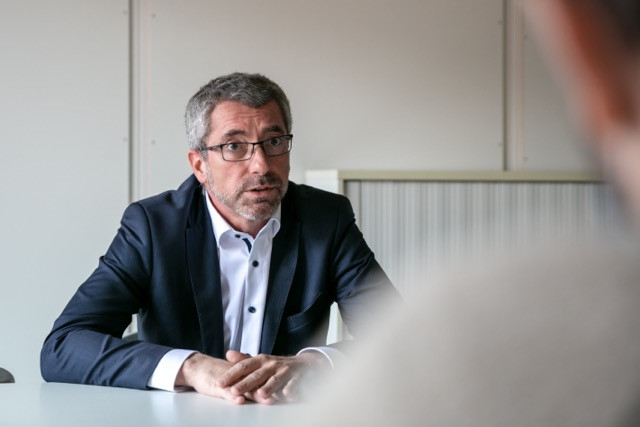“Some elements of the party never accepted my election and were determined, as soon as the result was announced, to bring it to an end as quickly as possible,” says former CSV president Frank Engel eight weeks after his resignation.
Speaking to Pierre Pailler in an extensive interview for Paperjam, Engel claims that his efforts to steer the party in a particular direction, which he had made clear during his election to the presidency, were thwarted by certain factions within the CSV. “I was not elected by the parliamentary group or by the national committee, I was elected by the party delegates, directly, in a competitive election, because of what I had to say, not because of what a particular body had to say. So, I started from the principle that there was enough to accord me a small touch of personal authority, also in policy orientation, which I was never granted.”
Looking back at his experience as party president, Engel says a solution in future may be to pay party presidents for what he says is a full-time job. “These are things that in other countries are perfectly normal… I would not have asked for a minister’s pay, but something that would allow someone who works 60 or 70 hours a week to live decently. That said, I knew that the state of the [party] finances would not allow it, which is why I did not ask for that. But I don’t think it’s right that parliamentary factions have so much money today…”
Talking about the financial controversy that brought about a referral to the public prosecutor’s office, Engel says that he had agreed from the outset to repay a fee of €40,000 that he was paid to find new headquarters for the party and to establish a foundation if he didn’t achieve those goals. “This agreement was unanimously accepted by the six members of the [Frëndeskreess] board of directors. Six! Not one. Six!”
As for the €6,000 euros in social security contributions that he claimed, he says that was also agreed with the secretary general and the treasurer of the party despite their claims to the contrary. “I did not make any transfers, I never had access to the accounts. A treasurer who wanted to refuse me something would have refused me.”
Engel agrees with former CSV leader Jean-Claude Juncker that the internal squabbles have damaged the party and should never have happened. “Since when do we denounce our own party president unnecessarily?” And he is not impressed by the decision by his successor, Claude Wiseler, to have party leadership posts shared by two people. “To dilute the responsibility until no one feels the slightest pressure, will not improve anything.”
He thinks whoever is chosen as the lead candidate at the next general election will be handicapped by having such a large team. “People want to know, especially in a highly personalised electoral system like ours, what the [candidate] thinks. People do not want to hear in an interview that someone has to consult the party body.”
Engel, who has also resigned as a member of the CSV and has said he will launch his own political party, says that in hindsight he would not even submit his candidacy to be party president. “Not because of what happened on the home stretch, but because of all the damage I did to myself and my well-being during two years of constant conflict,” he explains. “It made no sense, it could not work. It did not work. The CSV is not being revolutionised. And no team in the world, no matter how big it is, will change that.”
